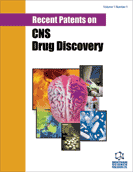Abstract
The World Health Organization grossly classifies the various types of astrocytomas using a grade system with grade IV gliomas having the worst prognosis. Oncolytic virus therapy is a novel treatment option for GBM patients. Several patents describe various oncolytic viruses used in preclinical and clinical trials to evaluate safety and efficacy. These viruses are natural or genetically engineered from different viruses such as HSV-1, Adenovirus, Reovirus, and New Castle Disease Virus. While several anecdotal studies have indicated therapeutic advantage, recent clinical trials have revealed the safety of their usage, but demonstration of significant efficacy remains to be established. Oncolytic viruses are being redesigned with an interest in combating the tumor microenvironment in addition to defeating the cancerous cells. Several patents describe the inclusion of tumor microenvironment modulating genes within the viral backbone and in particular those which attack the tumor angiotome. The very innovative approaches being used to improve therapeutic efficacy include: design of viruses which can express cytokines to activate a systemic antitumor immune response, inclusion of angiostatic genes to combat tumor vasculature, and also enzymes capable of digesting tumor extra cellular matrix (ECM) to enhance viral spread through solid tumors. As increasingly more novel viruses are being tested and patented, the future battle against glioma looks promising.
Keywords: Patent, glioma, astrocytoma, oncolytic virus, HSV-1, adenovirus, reovirus, new castle disease virus, angiogenesis, immune system, extra cellular matrix
 52
52





















